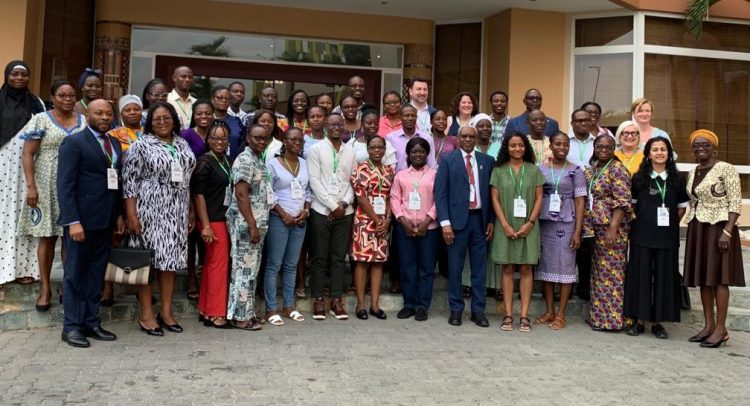
A number of healthcare professionals in the country say the sector’s fragile state may not withstand the crushing force of the pandemic, citing inadequate facilities, lack of research, among others as reasons.
Findings based on interviews some doctors granted this Paper indicate that the increasing number of coronavirus cases is taking a toll on the country’s health centres, as many of them are complaining of lacking space to admit people affected with the disease.
A medical doctor at the International Maritime Hospital, Dr. Jerome Appiah-Mensah, shared his frustrations with the B&FT, saying: “With the alarming increase in COVID-19 cases, our wards are full and we are forced to treat patients in the emergency room. So, if another patient rushes in with a different critical condition that is not COVID-19-related, the person will be treated in the same space as a COVID-19 patient; which is not ideal and puts the patient at risk.
“Ventilators, drugs for COVID-19 management are all in high demand, and these things are not readily available to treat patients with COVID-19 as well as other emergency cases. Should this persist, we will be forced to either make an expansion or convert one of our spaces not being fully utilised; as some patients are being treated while sitting in chairs, and that is not appropriate,” he said.
Another medical doctor, who works at the Komfo Anokye Teaching Hopsital in Kumasi, Dr. Paa Kwesi Baidoo, highlighted the relevance of investing in health facilities and research to improve the sector and make it ready for emergency situations like this.
“Even without the pandemic, the health sector has never been resilient as basic facilities needed in hospitals for daily patient care is lacking; how much more in the times of a pandemic that is already compounding on a fragile sector? These are real challenges. Research that will drive the health sector is virtually non-existent, as it involves money. Not a lot is dedicated to research in Ghana, even outside of the pandemic; we have to do something to improve the sector,” he said.
For the Executive Director of the Institute for Healthcare Improvement-Africa Region, Dr. Sodzi Sodzi-Tettey, the increasing stress on health facilities and medical professionals only serves as a reminder for individuals to exercise personal responsibility by observing preventive protocols for the virus.
“There is a challenge in being able to move patients who need certain types of care to the areas where they can receive that type of care. And treatment beds are also not enough; so while we do our best to manage in our hospitals – to give people the care that they need, supply them with oxygen, give them the treatment – it is necessary for all of us to comply with the safety protocols,” he said.
The new COVID-19 variant
According to research by UK’s Centre for Disease Control and Prevention (CDC), the new variant – first discovered in the UK in September, 2020 – is called B.1.1.7. This variant has emerged with an unusually large number of mutations, and spreads more easily and quickly than other variants.
Currently, there is no evidence that it causes more severe illness or increased risk of death. It is prevalent in London and South East England. This same variant has been discovered in Canada and the United States.
In South Africa, the variant is called 1.351 – which is independent of the variant detected in UK, though it shares some its mutations. This discovery was made in early October 2020, and has been said to be found in other places outside of South Africa.
Brazil’s first case of the new variant was recorded at an airport in Tokyo, Japan – where travellers from Brazil tested positive for the new variant called P.1. This variant contains a set of additional mutations that may affect its ability to be recognised by antibodies. These new variants tend to spread more quickly than other variants, which may lead to more cases of COVID-19.
The post Health workers fear sector is ill-prepared to fight pandemic appeared first on The Business & Financial Times.
Read Full Story
















Facebook
Twitter
Pinterest
Instagram
Google+
YouTube
LinkedIn
RSS